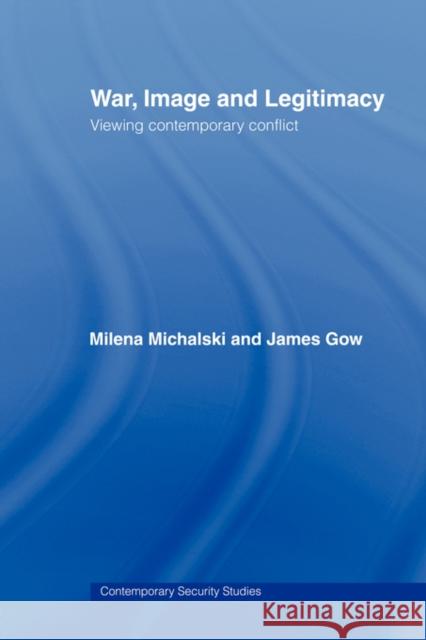War, Image and Legitimacy: Viewing Contemporary Conflict » książka
War, Image and Legitimacy: Viewing Contemporary Conflict
ISBN-13: 9780415481779 / Angielski / Miękka / 2008 / 288 str.
War, Image and Legitimacy: Viewing Contemporary Conflict
ISBN-13: 9780415481779 / Angielski / Miękka / 2008 / 288 str.
(netto: 214,08 VAT: 5%)
Najniższa cena z 30 dni: 216,55
ok. 22 dni roboczych.
Darmowa dostawa!
This book examines how image affects war and whether image affects our understanding of war. Crucially, how can moving-image representation of conflict affect the legitimacy, conduct and outcome of contemporary warfare? The collapsing Twin Towers of September 11; the hooded figure at the Abu Ghraib prison in Iraq; the images of beheadings on the internet; the emaciated figure in a Bosnian-Serb concentration camp; the dancing flashes across the skylines of Baghdad as US-led air bombardment deals blows to another 'rogue' regime: such images define contemporary conflict. Drawing on a wide range of examples from fiction and factual film, current affairs and television news, as well as new digital media, this book introduces the notion of moving images as the key weapons in contemporary armed conflict. The authors make use of information about the US, the UK, the 'War on Terror', the former Yugoslavia, former Soviet states, the Middle East and Africa. War, Image and Legitimacy will be of great interest to students of war and security studies, media and communication studies, and international relations in general.
This book examines how image affects war and whether image affects our understanding of war. Crucially, how can moving-image representation of conflict affect the legitimacy, conduct and outcome of contemporary warfare?
The collapsing Twin Towers of September 11; the hooded figure at the Abu Ghraib prison in Iraq; the images of beheadings on the internet; the emaciated figure in a Bosnian-Serb concentration camp; the dancing flashes across the skylines of Baghdad as US-led air bombardment deals blows to another ‘rogue’ regime: such images define contemporary conflict.
Drawing on a wide range of examples from fiction and factual film, current affairs and television news, as well as new digital media, this book introduces the notion of moving images as the key weapons in contemporary armed conflict. The authors make use of information about the US, the UK, the ‘War on Terror’, the former Yugoslavia, former Soviet states, the Middle East and Africa.
War, Image and Legitimacy will be of great interest to students of war and security studies, media and communication studies, and international relations in general.











